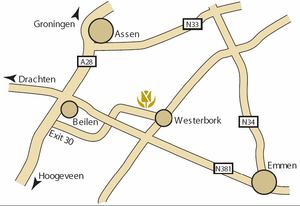Complex trauma-related disorders (Giovanni Liotti) |
Host
Lecturers
Dates
Fees
Payment of fee please to the account:
Recipient: PIE
Account number: 117863823
Bank code number:
Bank: Rabobank Westerbork
IBAN: NL41RABO0117863823
SWIFT-BIC: RABO.NL.2.U
Location
Hotel de Ruyghe Venne (Golden Tulip)

Beilerstraat 24a
9431 Westerbork
Netherlands
Phone: +31 (0)593 33 14 44
Telefax: +31 (0)593 33 28 88
eMail:info@gtmiddendrenthe.nl
Homepage:https://www.ruyghevenne.nl/
Early attachment disorganization is a likely risk factor for many different types of severe trauma-related DSM disorders, ranging from Complex PTSD and BPD to dissociative disorders. It is also a likely risk factor in the genesis of other DSM disorders. An explanation of the influence of this type of infant attachment on so many different syndromes may be found in the intersubjective dynamics that typically follow it (controlling strategies in the relationship between the child and the caregiver), and in the role of the collapse of these strategies in mediating dissociative responses to traumatic experiences.
In order to understand the nature of both early disorganized attachment and the controlling/disorganized strategies, an overall theory of the systems (variously called action systems, emotional systems, or motivational systems) that organize and govern human behaviour and experience will be discussed in the first part of the workshop. In the second part, the dynamics that lead from attachment disorganization to the controlling strategies, and those that link trauma to dissociation through the collapse of the controlling strategies will be dealt with extensively. The analysis of these dynamics suggests that dissociative processes may play a major role in the genesis of many DSM disorders.
The second part of the workshop also focuses on some consequences for psychotherapy of the theory of dissociation based on attachment disorganization. One theme will be the understanding of the potentialities of parallel integrated treatments in the psychotherapy of severe disorders implying dissociation, traumatic memories and attachment disorganization. The relational configuration created by the simultaneous presence and close cooperation of at least two therapists working in two different settings may constitute an ideal basis to prevent or correct the consequences of disorganized attachment emerging in the therapeutic relationship.
Participants
Psychotherapeuten/innen mit praktischer Erfahrungen in der Behandlung traumatisierter Patienten
Qualifizierte Fachkräfte, die im Traumabereich arbeiten
Languages
Seminar auf English .
Complex trauma-related disorders and disorganized attachment
PIE038-01 (2009 - 11. to 12. September)
Our Conditions for training and business are in effect.